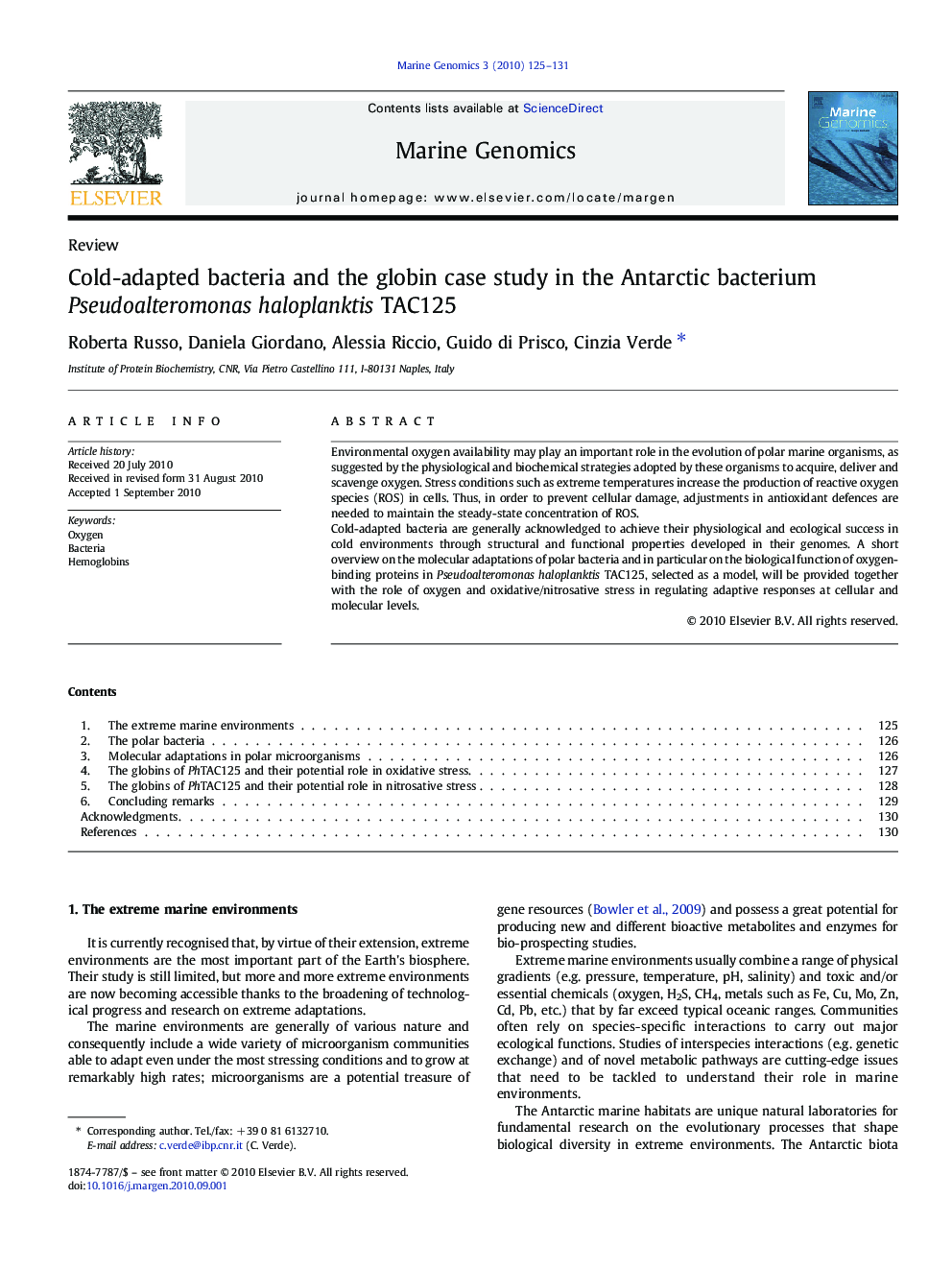| Article ID | Journal | Published Year | Pages | File Type |
|---|---|---|---|---|
| 2058263 | Marine Genomics | 2010 | 7 Pages |
Environmental oxygen availability may play an important role in the evolution of polar marine organisms, as suggested by the physiological and biochemical strategies adopted by these organisms to acquire, deliver and scavenge oxygen. Stress conditions such as extreme temperatures increase the production of reactive oxygen species (ROS) in cells. Thus, in order to prevent cellular damage, adjustments in antioxidant defences are needed to maintain the steady-state concentration of ROS.Cold-adapted bacteria are generally acknowledged to achieve their physiological and ecological success in cold environments through structural and functional properties developed in their genomes. A short overview on the molecular adaptations of polar bacteria and in particular on the biological function of oxygen-binding proteins in Pseudoalteromonas haloplanktis TAC125, selected as a model, will be provided together with the role of oxygen and oxidative/nitrosative stress in regulating adaptive responses at cellular and molecular levels.
